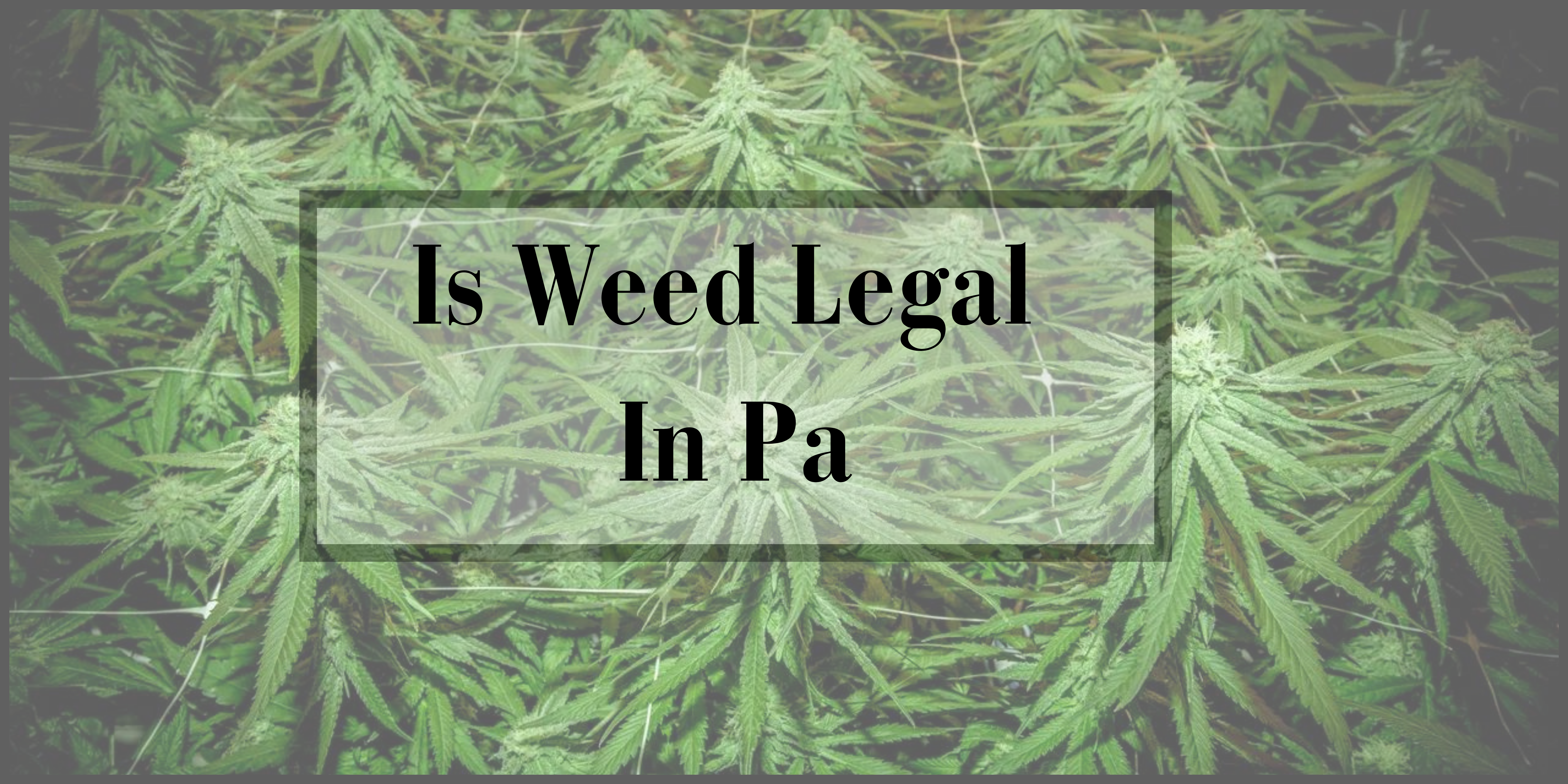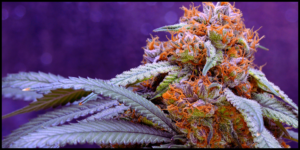
Pennsylvania lawmakers are taking note of New York and New Jersey’s implementation of adult-use cannabis programs, and making an attempt at reform. Senators Dan Laughlin and Sharif Street introduced bipartisan legislation aiming at legalizing cannabis for adults. Their bill establishes fair and rational protocols for the sale, regulation, consumption, and taxation of marijuana, and wanted to know if Is Weed Legal In Pa. Their bill prioritizes safety for patients as well as community reinvestment projects as well as social and economic justice.
Medical Marijuana
Pennsylvania legalized medical cannabis for use by residents in 2016 and launched its program two years later, opening its first dispensaries in April 2018. However, medical marijuana can only legally be acquired for certain approved conditions by residents with valid Pennsylvania medical marijuana cards and an accompanying doctor’s approval; furthermore, they may only possess up to a 90-day supply at once and use it through either vaping or ingesting methods – smoking it or placing it into a form that allows it can be smoked is forbidden.
If caught with marijuana in Pennsylvania, penalties may be severe. Repeat offenders could face up to three years in prison and a $15,000 fine; these sentences and fines could double in duration for repeat offenders. You may attend drug education, community service, and drug testing. Stay updated on Is Weed Legal In Pa.
There are various legislative bills being proposed to alter Pennsylvania’s medical marijuana laws, with Sen. Tim Regan proposing legislation that would provide the framework for adult-use marijuana in Pennsylvania and set strict potency limits on edible products as well as restrict advertising of marijuana to children. It would also permit dispensaries to operate safely and responsibly.
Furthermore, the bill proposes an 8 percent consumer and 5 percent retail tax on marijuana sales; according to estimates by the state independent fiscal office, this could generate up to $1 billion in additional revenue for Pennsylvania. This would significantly bolster its economy as it can help combat the opioid crisis, improve public health outcomes, and create thousands of jobs. It will require approval by the Senate Finance Committee and House Appropriations Committee before going forward; various interest groups including the Marijuana Policy Project (MPP) support it.
Recreational Marijuana
Pennsylvania is one of 24 states to legalize medical marijuana for qualifying conditions, yet recreational marijuana remains illegal within its borders. Anyone caught possessing more than 30 grams could face being charged with a felony and serving 2- 5 years behind bars. They could also face a fine of up to $15,000. Furthermore, those convicted of felonies cannot use or possess firearms. To qualify for medical marijuana cards at 18 or above with an active doctor’s prescription or they should know Is Weed Legal In Pa.
To become a registered patient, an individual must apply to their health department with valid photo identification. Once approved, they can purchase up to 90–day supply of marijuana. Though they must refrain from sharing their supply or smoking it in public places; possess it within 1,000 feet of schools or 250 feet of recreational playgrounds is illegal and selling to minors is also strictly forbidden.
State Senator Dan Laughlin and Sharif Street have introduced legislation that would legalize adult-use marijuana in Tennessee. They believe it provides a “singular opportunity to address decades of mass incarceration, disproportionate enforcement against marginalized communities, criminalization of personal choices and perpetuation of violence“. Additionally, legalizing cannabis will fund education while decreasing property taxes.
This bill would create a license system for businesses who wish to cultivate, sell and distribute marijuana within the state. To regulate this process it would create a Cannabis Regulatory Control Board. Additionally it allows an 8% sales tax on marijuana products as well as expunge nonviolent marijuana convictions from criminal records.
The sponsors of the bill have an established track record of supporting drug law reform in Pennsylvania. Their previous bills would have legalized recreational marijuana and decriminalized small quantities. Additionally they support creating an independent agency to monitor this industry.
Decriminalization
Pennsylvania laws regarding marijuana still restrict recreational use, making possession of more than 30 grams, just over an ounce, illegal and punishable by either fines or jail time. Furthermore, users cannot drive while under the influence of this substance and possessing paraphernalia such as pipes and bowls remains unlawful as well as selling or providing cannabis to minors even if they possess medical cannabis cards.
Local governments have taken an interest in decriminalization as an issue; one example being Philadelphia where decriminalizing simple possession of up to 30 grams was reduced from misdemeanor status to a $25 civil violation and automatic six month license suspensions were lifted when caught possessing marijuana.
Clark Hill PLC attorney Judith Cassel specialized in cannabis law. Emphasizes the need for cities to establish decriminalization policies that are both enforceable and educative in nature. With an effective enforcement strategy in place for local ordinances reducing arrests is also paramount. She stresses the need for education and outreach programs so people understand exactly what constitutes decriminalization policies.
An additional issue that must be resolved is racial disparities in marijuana enforcement laws. People of color are eight times more likely than whites to be arrested for marijuana possession. City officials must take measures to address this racial gap and decriminalize cannabis possession.
Bipartisan state senators in Pennsylvania are working towards legalizing marijuana for adult use. Senators Dan Laughlin (R-Erie County) and Sharif Street (D-Philadelphia) have officially introduced legislation. That would legalize adult marijuana consumption. Additionally this bill regulates potency levels, prevents edible tampering, limits marketing to children. As well as setting aside social and economic equity business licenses to support those disproportionately affected by marijuana prohibition.
Legalization
Pennsylvania remains one of a select few states where possessing small quantities of marijuana is still a criminal offense. Yet lawmakers from both parties are working toward changing that. Early 2022, bipartisan group of senators introduced a bill. Which would legalize recreational use for adults 21 or older. And make it easier for people with prior marijuana convictions to find work in the cannabis industry. This legislation is currently being reviewed in Senate Law and Justice Committee for approval or rejection.
As much as politicians may dissent with legalization of marijuana in Pennsylvania. A recent poll from CBS indicates a majority of residents support legalizing recreational pot. 66% support legalizing recreational cannabis for this move would generate new sources of revenue. While simultaneously decreasing criminal prosecution rates and imprisonment rates on Is Weed Legal In Pa.
Although proposed legislation remains uncertain of passage in its present form, its passage remains unknown. While the current legislature is controlled by Republicans. A coalition of Democrats are pushing for change through reform legislation. Introduced by senators from Philadelphia and suburban Philadelphia who joined forces to introduce SB 846. First announced by Sharif Street (Democratic) and Dan Laughlin (Republican).
This bill would allow adults to possess up to 30 grams of marijuana for personal use. Purchase it from licensed dispensaries with medical marijuana. Patients allowed to grow five plants for personal use at once and an eight percent sales tax imposed. Consumption would also be prohibited public places and within 1,000 feet of schools or recreational playgrounds.
This bill would restrict minors from using marijuana in public spaces and prohibit smoking in areas that prohibit tobacco smoking. Furthermore, employers cannot discriminate against employees who use cannabis and landlords cannot refuse rent to tenants who use pot.


